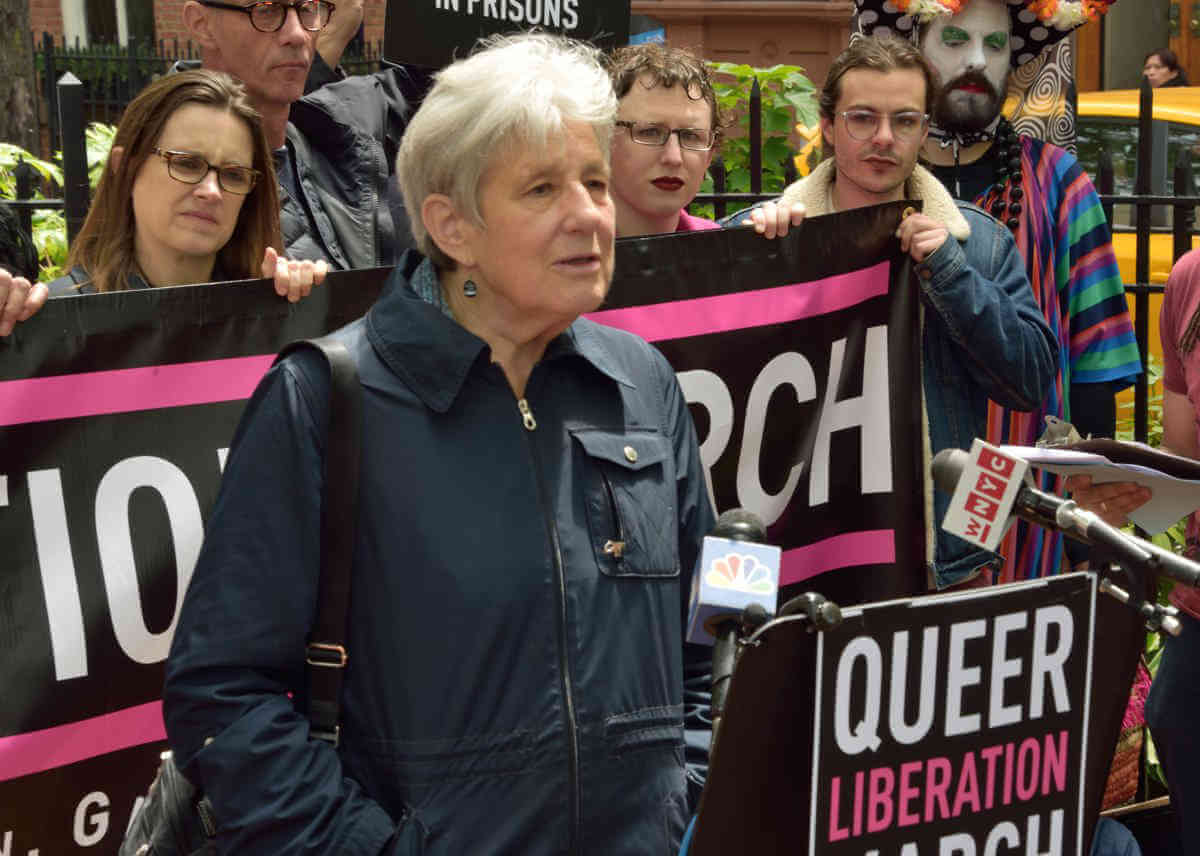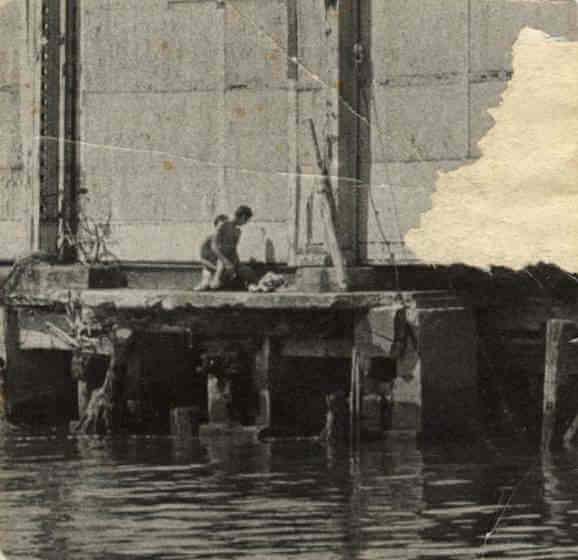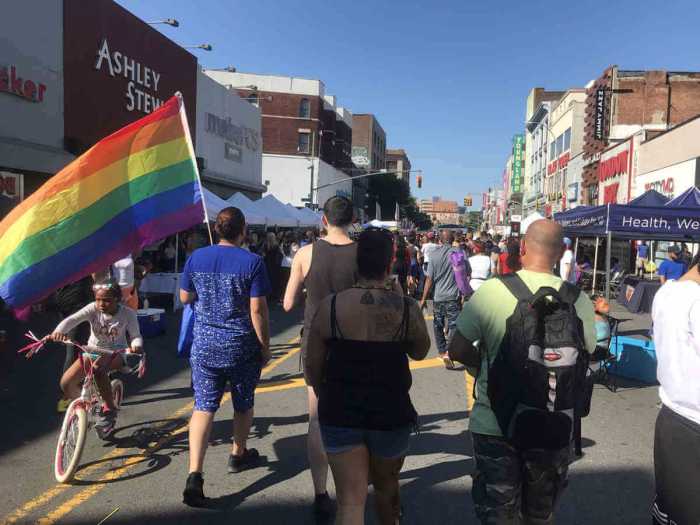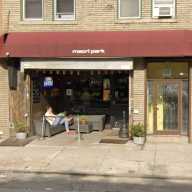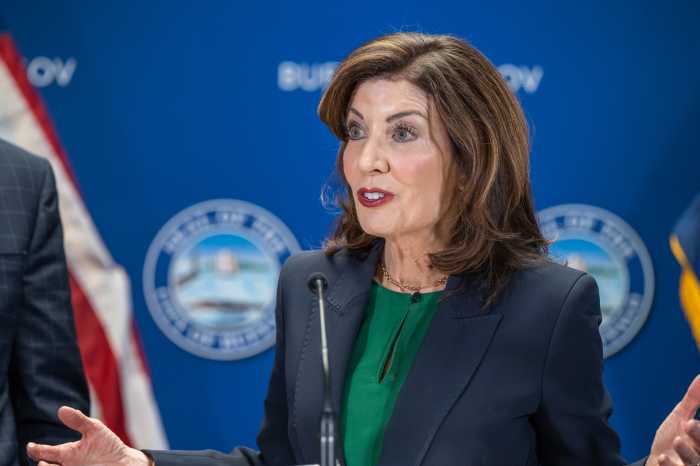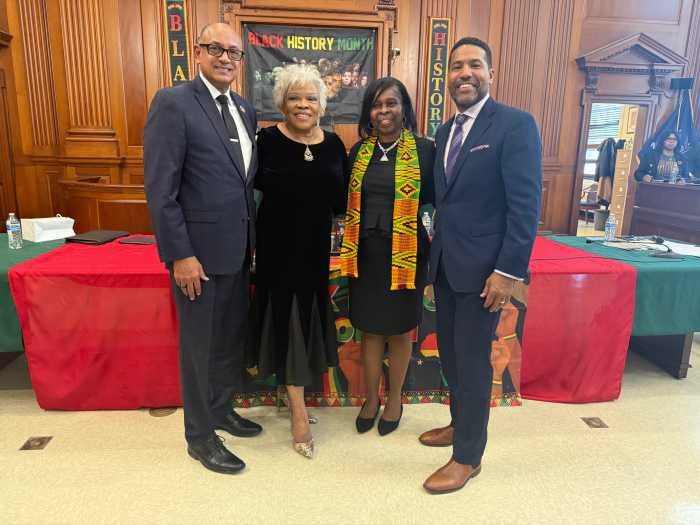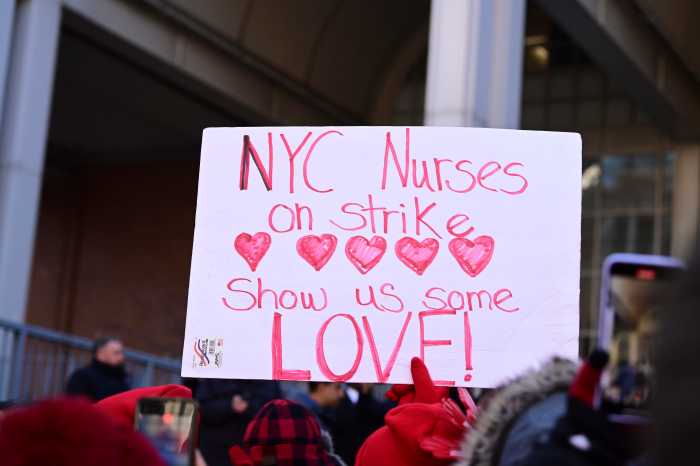The coalition that is producing the Queer Liberation March and Rally on June 30 to commemorate the 50th anniversary of the Stonewall riots officially announced its route and rally site at a press conference held across the street from the Stonewall Inn, where the 1969 riots that mark the start of the modern LGBTQ rights movement occurred.
“It was a life-changing event for me,” said Ellen Shumsky, a former member of the Gay Liberation Front (GLF), referring to the 1970 march that first commemorated the riots with a march in New York City. Shumsky had earlier joined marches for other radical causes. The 1970 march was her first LGBTQ march.
“I realized I had been marching in a closet,” she said at the May 14 press conference. “This was the first march where I could step out and be proud.”
The members of the Reclaim Pride Coalition, which is producing the march and rally, decided last year to move forward with their own events after becoming increasingly unsatisfied with the tenor of the march produced by Heritage of Pride (HOP), the group that organizes New York City’s annual Pride Parade and related events.

Some members of the Coalition began agitating for a separate march in 2017 and again in 2018 when some of them battled with HOP over allowing resistance contingents in the march in those years. In 2019, they want to send their own message in their own march. The Reclaim Pride and HOP events will take place on the same day, though the Reclaim Pride march will begin hours earlier than HOP’s.
Activists are offended by what they see as the “over-policing” and “selling off” of the annual event, as Colin Ashley, a Coalition member, said at the press conference. While community groups and non-profits comprise the majority of contingents in HOP’s march, the sponsors that deliver significant funding for the event are a dominant presence with large floats and contingents.
The Coalition march will step off from Christopher Street and Seventh Avenue at 9:30 a.m. It will head north on the avenue then turn east on 10th Street and travel north on Sixth Avenue to Central Park for the rally on the Great Lawn. Marchers will pause at Bryant Park at 42nd Street and Sixth Avenue at roughly 11 a.m. for stragglers who could not make the earlier start time.
“I’ve supported it since I learned about it,” said Fred Sargeant who organized the 1970 march with the late Craig Rodwell, then his partner. “I think it’s good idea to return the march to its old route, eliminate the barricades, and get the people back into the march.”

The 1970 march stepped off from the West Village and traveled up Sixth Avenue to Central Park for a “gay-in” on the Sheep Meadow.
HOP’s march, which always begins at noon, will be staged in the blocks above 26th Street and east and west of Fifth Avenue. The march will head south on Fifth Avenue, west on Eighth and Christopher Streets past the Stonewall Inn and north on Seventh Avenue to disperse in the blocks above 24th Street. GLF is one of five grand marshals in HOP’s march and members of that group will likely be participating in both events.
“I think the people at HOP have done a job over the years that certainly can be commended, but it has gotten away from what it needs to be,” Sargeant told Gay City News from his home in Vermont.
Reclaim Pride has nearly fulfilled its $150,000 budget and is close to acquiring the eight permits it needs to stage its rally in Central Park. It will not have a permit for its march.

“We have an agreement,” said Norman Siegel, the civil rights attorney who represented the Coalition in its months-long negotiations with the NYPD and the city parks department. “That’s sufficient under the First Amendment.”
In 1994, at the 25th anniversary, a group called Gay & Lesbian Americans (GLA) sued the city to win a permit to march up Fifth Avenue to Central Park for that year’s rally. The larger march that year was produced by Stonewall 25, not HOP, and it traveled on First Avenue by the United Nations building to reflect the international scope of the anniversary. Like the Coalition, GLA, which was represented by Siegel, wanted to send its own message with its own march.
GLA lost its court battle, but still marched on Fifth Avenue. The police closed the avenue, but William Bratton, then the police commissioner, stood on the steps of St. Patrick’s Cathedral as the march went by to make clear where his sympathies lay. Cardinal John O’Connor, who headed the Archdiocese of New York from 1984 until 2000, was a frequent opponent of the LGBTQ community and commented from the pulpit in that cathedral. Before HOP’s route was shortened, it was common for marchers to jeer or chant “Shame” as they went by the cathedral.

“The Reclaim Pride Coalition wants to make sure that what happens at Stonewall 50 remembers the spirit of what happened here 50 years ago,” Siegel said at the press conference. “I am proud to be the attorney for the rebels.”

